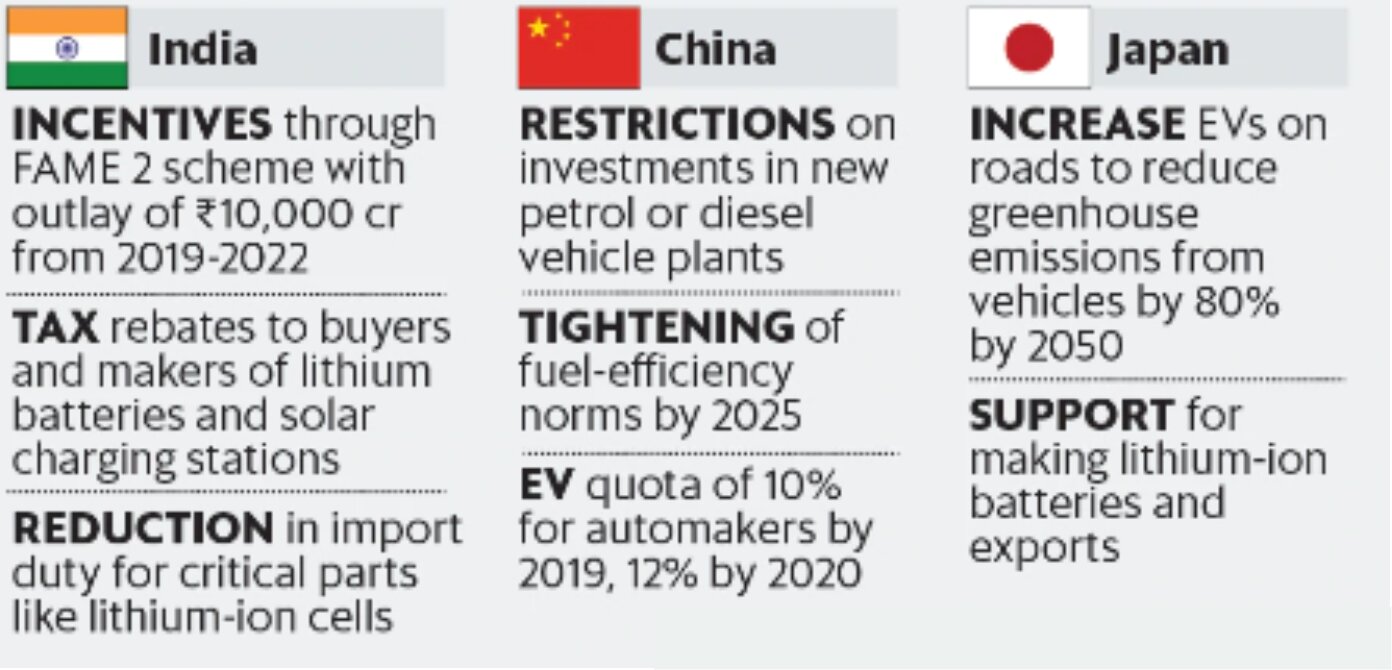Governance
Union Budget and E-Vehicles
- 08 Jul 2019
- 3 min read
The Union Budget 2019-20 included several incentives for developing electric vehicle industry (EV Industry) in India.
- Income tax rebates of up to ₹1.5 lakh to customers on interest paid on loans to buy electric vehicles, with a total exemption benefit of ₹2.5 lakh over the entire loan period.
- Customs duty exemption on lithium–ion cells, which will help lower the cost of lithium-ion batteries in India as they are not produced locally.
- This is in addition to the ₹ 10,000 crore allocated for EVs under the FAME II scheme.
- Makers of components such as solar electric charging infrastructure and lithium storage batteries and other components will be offered investment linked income tax exemptions.
- Proposal to reduce GST rate on electric vehicles from the current 12% to 5%.
The State of EVs in India
- According to the Economic Survey, the market share of electric cars is only 0.06 % in India when compared to 2 % in China (world’s largest EV market) and 39 % in Norway.
- Reasons for lesser market presence of EVs in India are lack of charging infrastructure and high cost.
Steps Taken by Other Countries
- In major cities in developed markets such as Frankfurt (Germany) and others, EVs are given free parking space and in certain parts of cities only such eco-friendly vehicles are allowed.
- European Union (EU) countries are also trying to evolve into a hub for developing batteries and other spare parts for electric vehicles through the Strategic Action Plan For Batteries.
- The continent hosts the countries with the largest base of electric car sales. Norway, for instance, leads the electric vehicle market—EVs comprised 46% of the total vehicles sold in the country in the year 2018.
- In the US, California is legislating tough emission norms for vehicles and providing fiscal incentives for plug-in hybrid and battery electric vehicles.
Way Forward
- The government can think of giving a mandate to leading manufacturers that they should have a certain share of their sales from EVs after a particular time period.
- The NITI-Aayog is considering a policy proposal to ban all internal combustion engine two-wheelers under 150cc by the year 2025 and three-wheelers by the year 2023.
- Access to fast-charging facilities must be fostered to increase the market share of electric vehicles. Investments from private players is required for the same.







